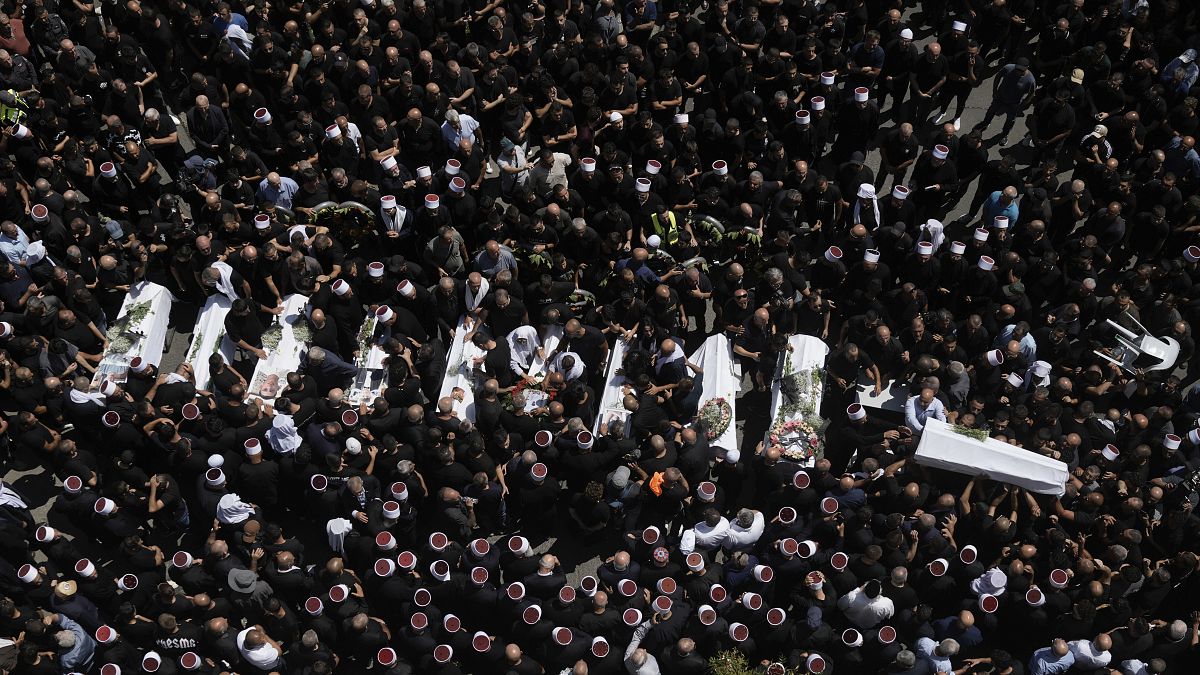Over the weekend, Israel experienced a tragic rocket strike that killed 12 youngsters in the Golan Heights. Israel’s intelligence points fingers at the Lebanese group Hezbollah, with support from Iran, who they believe are responsible for the attack. Israeli Prime Minister Benjamin Netanyahu has vowed that Hezbollah will pay a heavy price for their actions, promising retaliation. In response, Israel has launched airstrikes on targets in Lebanon, while Hezbollah denies any involvement in the strike, signaling a potential escalation in tensions.
The deadly rocket strike in the Golan Heights marked the deadliest attack on Israeli civilians since the conflict with Hamas began last October. Mourners gathered for the funerals of the victims, as Israel’s defense minister accused Hezbollah of carrying out the strike. Prime Minister Netanyahu, cutting short a trip to the United States, returned to Israel to chair an emergency meeting, where the government was authorized to decide on a military response. Both Israel and Hezbollah exchanged strikes, but there were no immediate reports of casualties.
In the wake of the escalating conflict, US Secretary of State Antony Blinken emphasized Israel’s right to defend its citizens but also urged against further escalation. Lebanon’s Foreign Minister has reached out to the US government to request restraint from Israel to prevent further deterioration of the situation. The US has reportedly sent a message to both Israel and Hezbollah to exercise caution and avoid further violence. The fear of a broader regional war in the Middle East looms as tensions between these two groups continue to rise.
The conflict between Israel and Hezbollah has been ongoing since the incursion by Hamas into Israel in early October. Israel has been conducting airstrikes on Hezbollah targets, resulting in numerous casualties on both sides of the border. The violence has prompted evacuations of tens of thousands of people in the region, as the situation remains volatile. Most of the attacks have been confined to specific border areas, but there have been instances of targeted assassinations of Hezbollah and Hamas leaders further north.
The continuous airstrikes and drone attacks by Israel in Lebanon have resulted in significant casualties, including hundreds of Hezbollah members and civilians. On the Israeli side, both soldiers and civilians have lost their lives in the conflict. The situation remains tense as both Israel and Hezbollah prepare for potential retaliation and further escalation. The involvement of Iran, as a supporter of Hezbollah, adds another layer of complexity to the already volatile situation in the region. Efforts from the international community to urge restraint and prevent further violence are crucial in avoiding a full-scale regional war.










